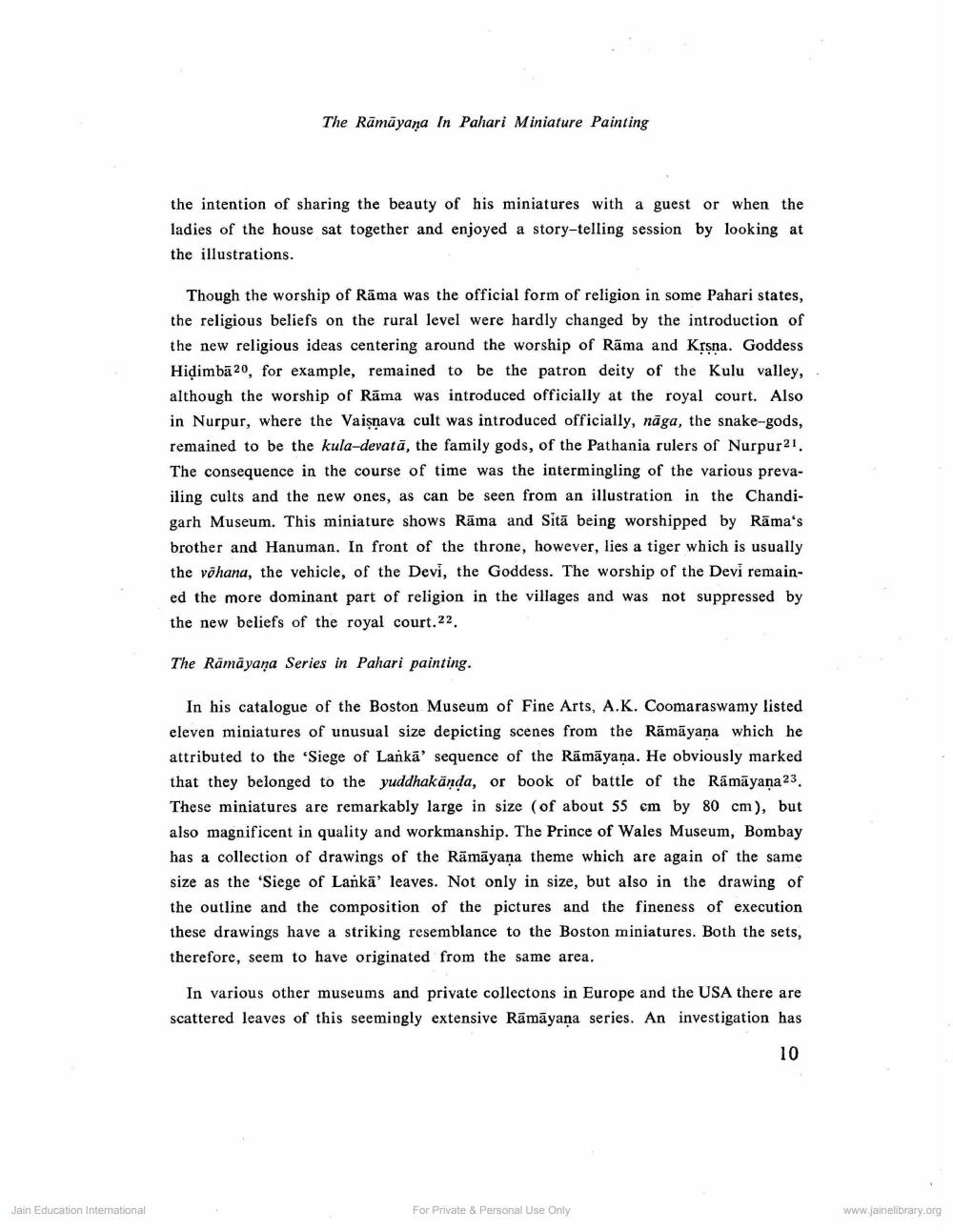________________
The Rāmāyana In Pahari Miniature Painting
the intention of sharing the beauty of his miniatures with a guest or when the ladies of the house sat together and enjoyed a story-telling session by looking at the illustrations.
Though the worship of Rāma was the official form of religion in some Pahari states, the religious beliefs on the rural level were hardly changed by the introduction of the new religious ideas centering around the worship of Rāma and Krýna. Goddess Hidimbā 20, for example, remained to be the patron deity of the Kulu valley, although the worship of Rāma was introduced officially at the royal court. Also in Nurpur, where the Vaisnava cult was introduced officially, nāga, the snake-gods, remained to be the kula-devatā, the family gods, of the Pathania rulers of Nurpur21. The consequence in the course of time was the intermingling of the various prevailing cults and the new ones, as can be seen from an illustration in the Chandigarh Museum. This miniature shows Rāma and Sitā being worshipped by Rāma's brother and Hanuman. In front of the throne, however, lies a tiger which is usually the võhana, the vehicle, of the Devi, the Goddess. The worship of the Devi remained the more dominant part of religion in the villages and was not suppressed by the new beliefs of the royal court.22.
The Rāmāyaṇa Series in Pahari painting.
In his catalogue of the Boston Museum of Fine Arts, A.K. Coomaraswamy listed eleven miniatures of unusual size depicting scenes from the Rāmāyana which he attributed to the 'Siege of Lanka' sequence of the Rāmāyaṇa. He obviously marked that they belonged to the yuddhakānda, or book of battle of the Rāmāyana 23. These miniatures are remarkably large in size (of about 55 cm by 80 cm), but also magnificent in quality and workmanship. The Prince of Wales Museum, Bombay has a collection of drawings of the Rāmāyana theme which are again of the same size as the 'Siege of Lanka' leaves. Not only in size, but also in the drawing of the outline and the composition of the pictures and the fineness of execution these drawings have a striking resemblance to the Boston miniatures. Both the sets, therefore, seem to have originated from the same area.
In various other museums and private collectons in Europe and the USA there are scattered leaves of this seemingly extensive Rāmāyaṇa series. An investigation has
10
Jain Education Intemational
For Private & Personal Use Only
www.jainelibrary.org




